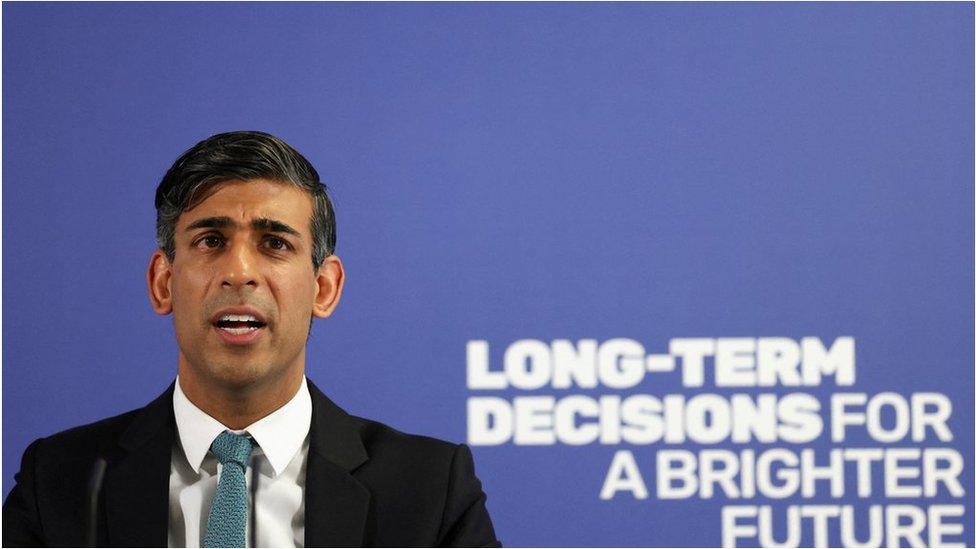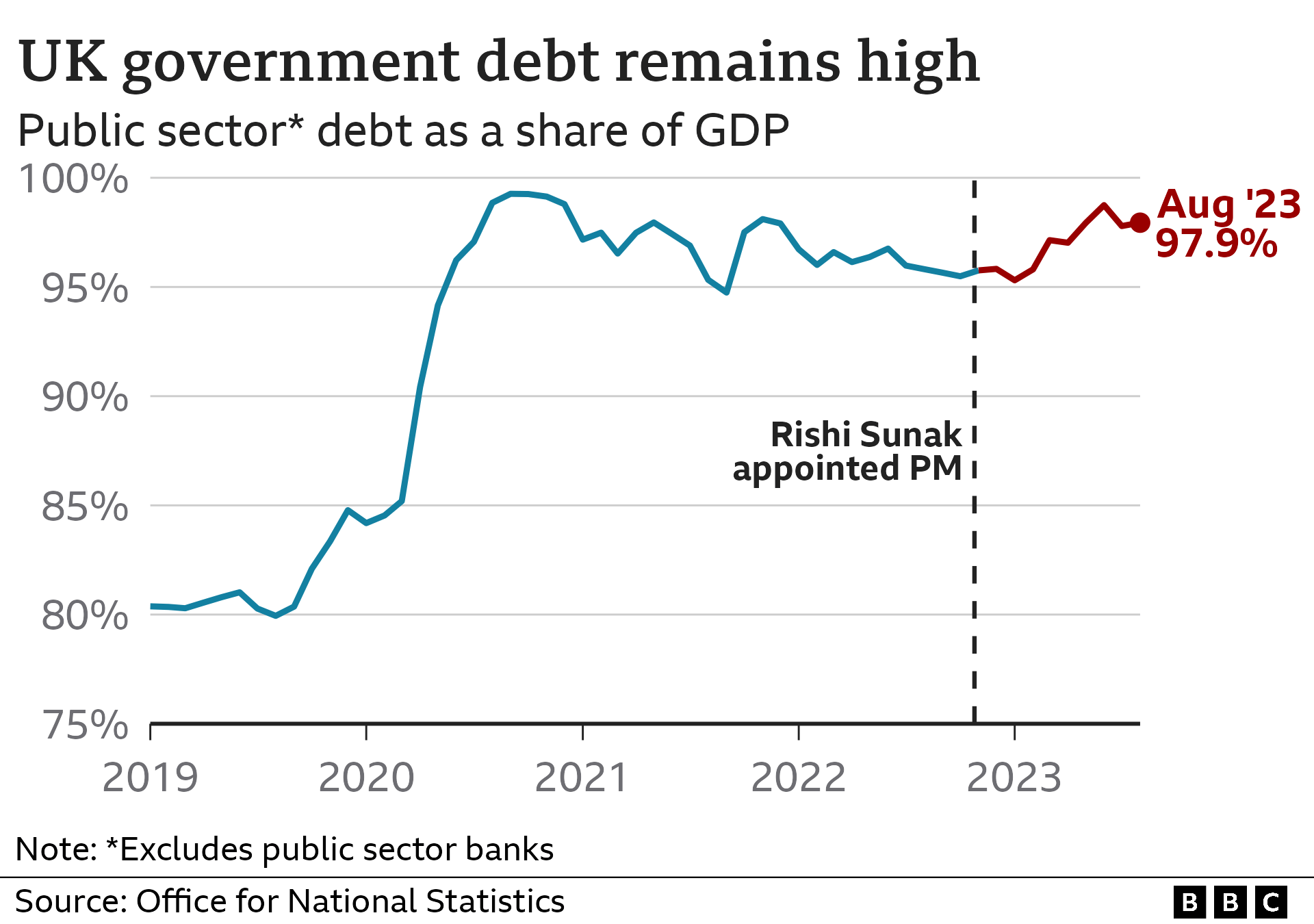Rishi Sunak: 'We've halved inflation' and other claims checked
- Published

Two days before the government sets out its tax and spend plans in the Autumn Statement, the prime minister gave a speech about the UK economy.
We've been looking at some of his claims.
'I promised you we would halve inflation - we took the difficult decisions and we have delivered on that promise'
Rishi Sunak promised in January that inflation would halve by the end of this year, from its level of 10.7% in the last three months of 2022.
Inflation was 4.6% in October, which means the pledge is likely to be met unless there is a considerable increase before the end of the year.
However, Paul Johnson, director of the IFS, an influential economics think tank, has said: "The job of cutting inflation is for the Bank of England not the government."
The Bank of England has been raising interest rates to try to bring inflation down towards its 2% target, external.
An example Mr Sunak gave of his difficult decisions to control inflation was not giving big pay rises to striking public sector workers.
The IFS said the inflationary danger from public sector pay deals is that if they are much higher than in the private sector, those workers will also ask for bigger pay rises. However, Mr Johnson said, external "we're clearly not there".
'Energy bills have fallen significantly'
The cost of standard variable energy deals in England, Wales and Scotland is controlled by the energy price cap, which is set as a maximum price per unit by the regulator, Ofgem.
Under this, a typical household's annual gas and electricity bill, based on the period from October to December 2023 is £1,923. This is indeed a fall from £2,074 in the previous three months, external and the £2,500 last winter.
But it's still considerably more than the typical bill two years before, external (between October 2021 and March 2022) which stood at £1,277.
And when a typical household was paying £2,500 last winter, it was receiving £400 in energy bill support from the government, which is no longer available. Some groups can still get help, external with their energy bills.
'Borrowing £28bn a year as the Labour Party want to will make debt go up'
Mr Sunak was talking about Labour's plans to borrow in order to invest in green energy projects.
In September 2021, Labour said it would deliver an additional £28bn of capital investment each year to support the UK's transition to net zero.
However, in June, Shadow Chancellor Rachel Reeves said she would instead ramp up investment over time from a 2024 election win, reaching £28bn a year after 2027.
The figure now includes £8bn of existing investment in green schemes, external - making it £20bn of additional investment.
Ms Reeves has pledged to reduce national debt as a share of the economy, which is similar to the government's pledge.
The current level of the government's debt is high by historical standards at just under 100% of the size of the economy.


